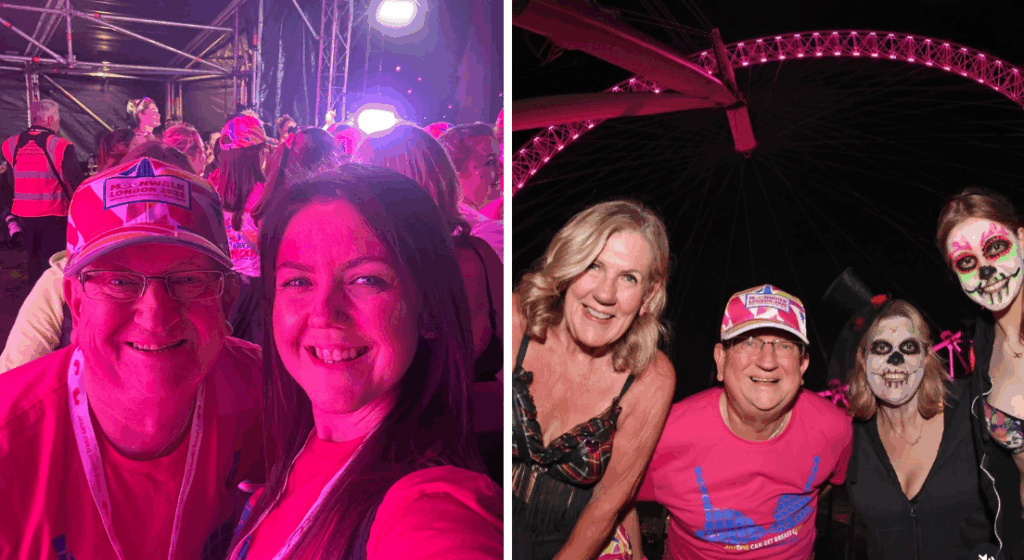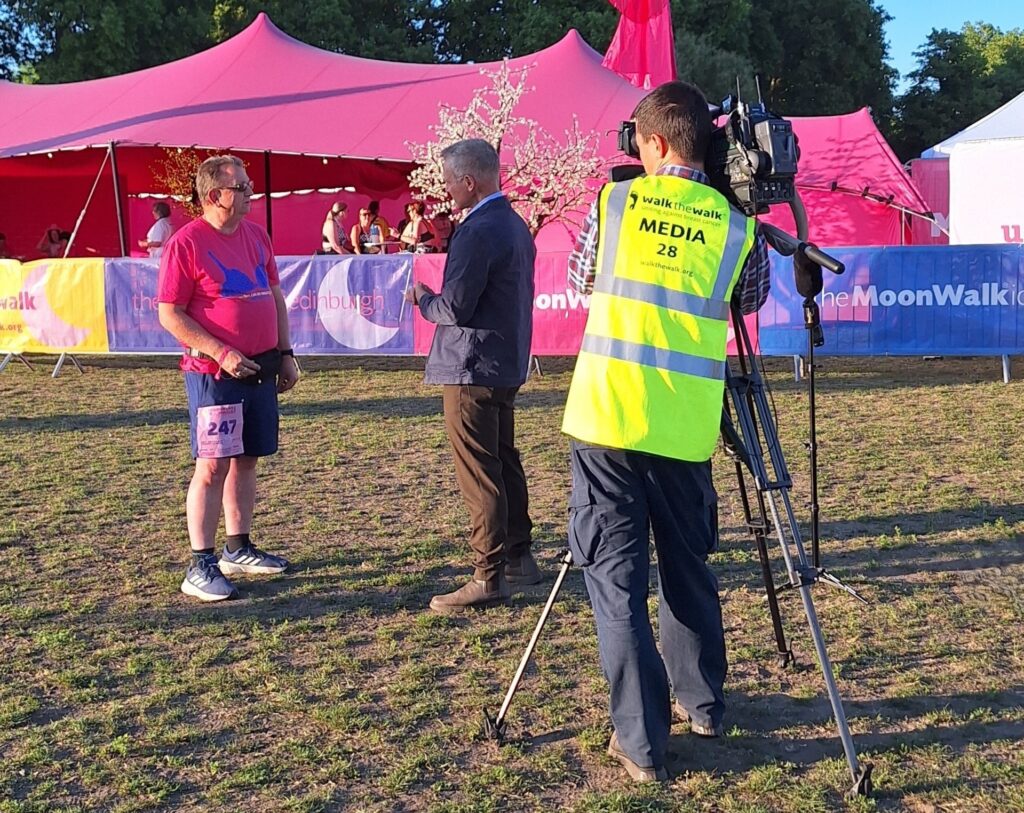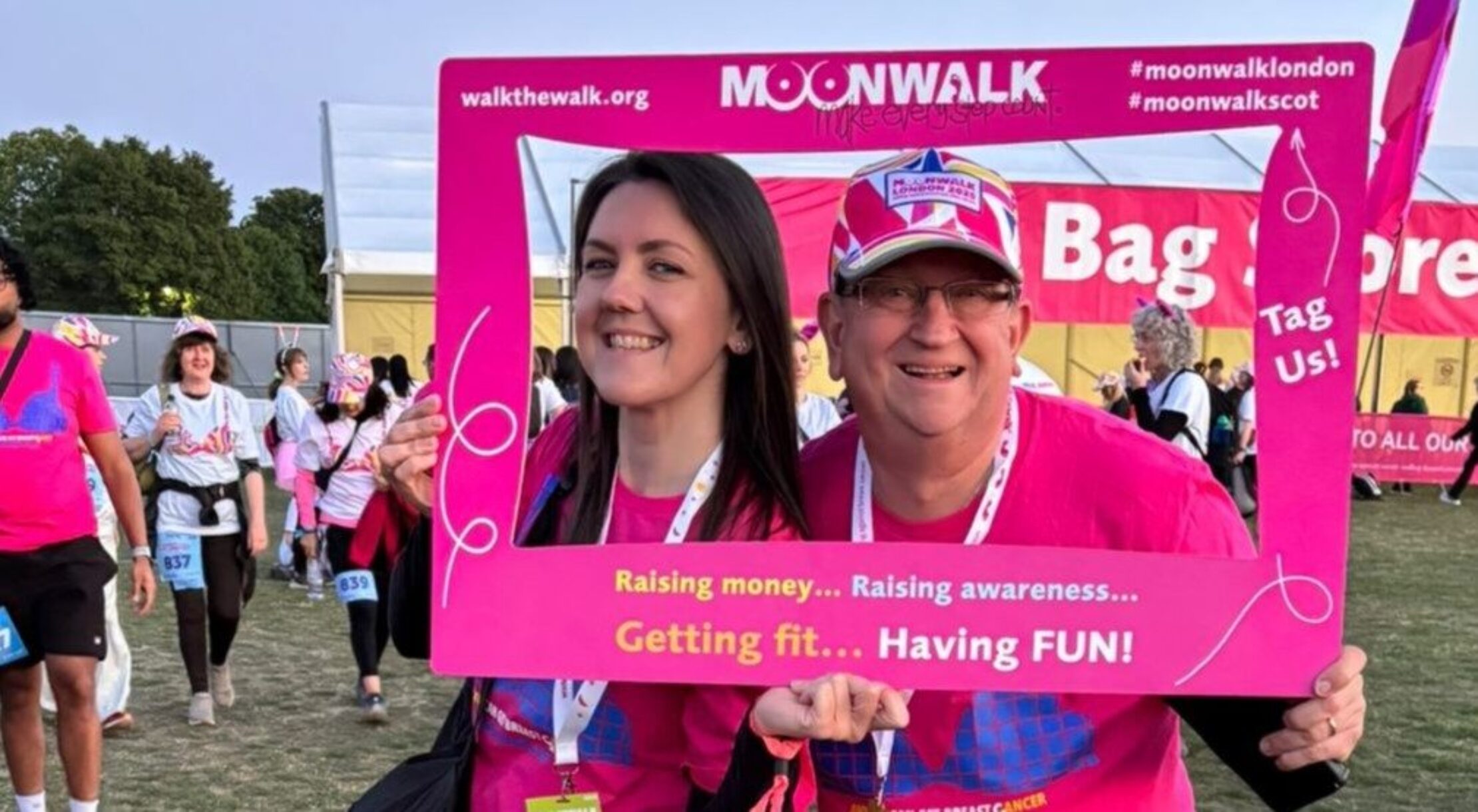 “I was first diagnosed with breast cancer 20 years ago and have been living with secondary breast cancer since 2017. When I was first diagnosed, I didn’t even know that men could get breast cancer – I’ve done so much over the years to raise as much awareness as I can, but there’s still much more to be done.
“I was first diagnosed with breast cancer 20 years ago and have been living with secondary breast cancer since 2017. When I was first diagnosed, I didn’t even know that men could get breast cancer – I’ve done so much over the years to raise as much awareness as I can, but there’s still much more to be done.
I was only 36, when I discovered a lump near the nipple on my left breast.
I wasn’t concerned about it at all and thought it was just a fatty lump. My GP also thought it was nothing, but referred me for further tests, just in case.
Having had a mammogram and an ultrasound, I was taken into a side room and told that I had breast cancer – the news came totally out of the blue. It was very difficult telling people about my diagnosis – some people even questioned whether men could actually get breast cancer.
My treatment was a mastectomy, including lymph node removal (cancer was discovered in three of my lymph nodes), then radiotherapy and chemotherapy.
I started taking the hormone therapy Herceptin, which my wife Karen fought for on my behalf, because at the time Herceptin was available on the NHS for women, but not for men.
In 2012, I was diagnosed with primary breast cancer for the second time, after experiencing some pain in the middle of the chest, while I was at the gym. I had more surgery, to remove my sternum, and was well for another five years, until 2017, when I decided to get myself checked out again, having had a cough for a while. I had a CT scan, which showed nodules in my lungs – this time it was secondary breast cancer and the news knocked me for six. Mentally, this was a different ball game, as my cancer had spread. It could be treated, but was now incurable.
Fast forward to 2025 and it’s now two decades since my first diagnosis and I’ve been living with secondary cancer for eight years.
The drugs I’m taking are working well, I’ve benefited from some recent advances in treatment and I feel very blessed. All my recent scans have been fine and my cancer is being well controlled. A lot of people don’t make it a couple of years down the line after a cancer diagnosis, let alone 20!
During the last two decades, I’ve done as much as I can to raise awareness that breast cancer affects men too. When I first diagnosed, I felt very isolated – there weren’t any specific support groups for men with breast cancer – my only option was to attend groups which were entirely made up of ladies. Those groups were great, but I’m so glad that there are now specific groups for men with breast cancer, including the Men’s VMU (Virtual Meet Up).
We get together online every month and occasionally meet up in person as a group as well. We sometimes have up to sixteen men who have had a breast cancer diagnosis at our monthly online meetings. It’s wonderful to chat man-to-man about what we’re all going through and it’s very different to the women’s groups which I attend. The VMU is a forum where I know the people I’m talking to really do understand.
One of the subjects which often comes up at VMU meetings is the hormone therapy Tamoxifen, which many of us in the group take. There hasn’t been much research done on the effect of this drug on men – it’s not an issue which would come up at women’s breast cancer groups quite as often as it does for us at the VMU! I still attend other support groups too – meeting up every month for a social get together at a café or pub. All the support I receive is absolutely invaluable.
Nowadays, there are more leaflets and information generally about breast cancer in men and more coverage of men’s breast cancer in the press.
However, I think that the one area where things really need to improve is on TV – every time that breast cancer is mentioned on television, it should also be highlighted that Men Get Breast Cancer Too. If a TV show maybe talks to five women about breast cancer, they should also always include one man! Sometimes, I’ll email a TV show, or maybe ring a radio station, to remind them to mention men when they’re talking about breast cancer. I’m always happy to be interviewed about my own story, as it helps spread the word.
 Cancer charities need to keep on mentioning that men get breast cancer too in their awareness work, especially during Breast Cancer Awareness Month, when the disease has its highest profile during the year. There also needs to be more research done into the side effects of breast cancer treatment on men. It’s now been 20 years since my first diagnosis and it doesn’t feel as though things have moved on very much in this area.
Cancer charities need to keep on mentioning that men get breast cancer too in their awareness work, especially during Breast Cancer Awareness Month, when the disease has its highest profile during the year. There also needs to be more research done into the side effects of breast cancer treatment on men. It’s now been 20 years since my first diagnosis and it doesn’t feel as though things have moved on very much in this area.
Going forward, I’ll continue raising awareness, as much as possible. For example, I loved taking on the 15.1 miles Half Moon at The MoonWalk London earlier this year, as part of a team called “Because we Can”.
It’s fantastic that men are included in The MoonWalk and I’d encourage other men to get involved and give it a go. It was the longest charity walk I’ve ever done and very tiring, but it was a wonderful night and an amazing opportunity to continue reminding people that Men Get Breast Cancer Too”.
Thank you for sharing your story Stuart and for taking part in this year’s MoonWalk London!


